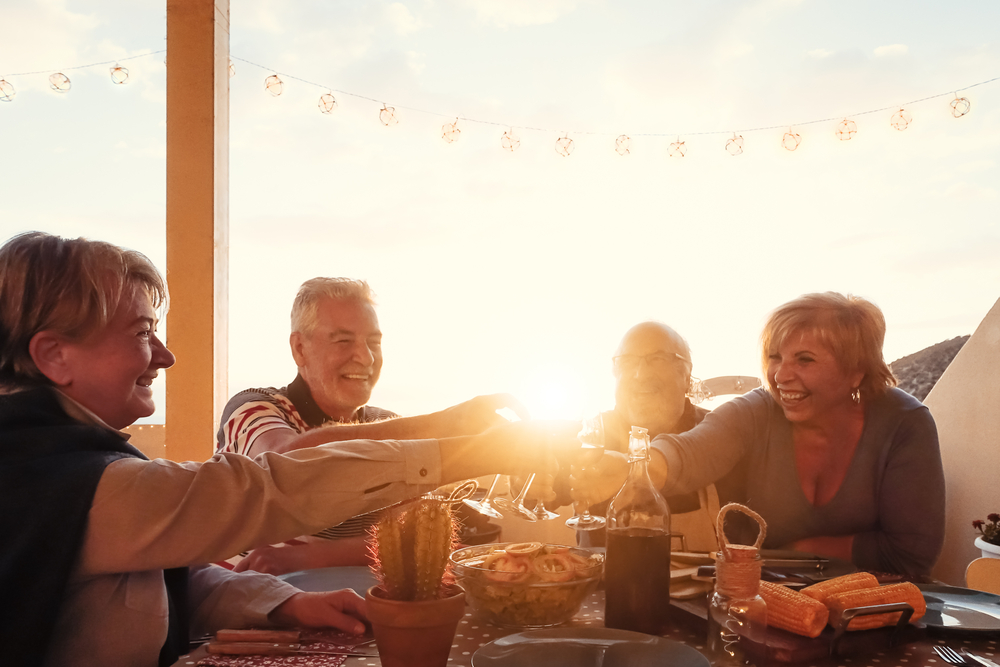
4 Tips for Happy and Healthy Aging
Are you looking for some of the best ways to make the most out of your aging process? You’ve come to the right place. Here

Friendship is a cornerstone of human existence, providing us with joy, comfort, and a sense of belonging. As we age, the power of friendship – important from our earliest years – can actually mean even more. While young friendships offer the thrill of discovery and bonding, those formed in later years or that have endured the test of time can provide a profound sense of security, understanding, and emotional support. Friendship and age go hand in hand.
In our youth, friendships often revolve around shared interests, school activities, and the sheer excitement of discovering new perspectives. These relationships lay the foundation for understanding social dynamics and shape our identities. While undoubtedly valuable, these early friendships are often based mostly on external factors and might not always stand the test of time.
As we transition into adulthood, our friendships tend to become more selective. We begin to prioritize quality over quantity. With busy lives, commitments, and families of our own, the friendships that persist are those that offer mutual understanding, trust, and loyalty. It’s during these years that we often find those few people with whom we can share our deepest fears, joys, and dreams.
As retirement approaches and families expand, many find solace in friends who have shared similar life journeys. The value of a trusted confidante who understands and shares your history cannot be underestimated. These friendships, be they old or new, provide a therapeutic space to reminisce, grieve, and celebrate life.
One of the standout benefits of enduring friendships is the emotional resilience they foster. Aging comes with challenges: health issues, the loss of loved ones, and the fear of the unknown future among them. A true friend, especially one who has known you for decades, can offer a comforting shoulder and a listening ear, providing the emotional cushion needed to weather life’s storms.
Loneliness can be a significant concern as we age. With children leaving the nest, possible loss of a spouse, or reduced mobility leading to decreased social interactions, many older people face possible isolation. Long-standing friendships or forming new bonds in senior communities can truly be a lifeline, ensuring that there’s always someone to share a conversation, a meal, or a laugh with. There are proven benefits to emotional, and physical, health due to having a vibrant social network.
Social interactions have been linked to better cognitive functioning. Engaging in conversations, sharing memories, or even partaking in group activities can stimulate the brain, helping to keep it sharp. By maintaining active friendships, seniors can potentially delay the onset of age-related cognitive decline and enjoy a mentally fulfilling life.
While the value of aged friendships is undeniable, it’s never too late to forge new bonds. Participating in community events, joining clubs, volunteering, or simply taking a proactive approach in reaching out can lead to new, meaningful relationships.
As we age, the bonds of friendship offer companionship, emotional resilience, mental stimulation, and a balm for the soul. It’s part of living a healthy and vibrant life as an older adult. At Panacea Scientific, we also believe in the power of natural products to help people of all ages live their lives to their fullest. Visit Panacea Scientific now to see our line of all-natural supplements.

Are you looking for some of the best ways to make the most out of your aging process? You’ve come to the right place. Here

We hear about probiotics everywhere, especially when it comes to yogurt. But what are probiotics? Why do we need them? At Panacea Scientific, we’d like

We are all guilty of it: feeling starved and then reaching for something with too much sugar. You feel a surge of energy from your

Payment types accepted:
Visa/MC/Discover/ American Express
© Copyright Panacea Scientific 2020. All rights reserved. | Website by Infinite Web Designs